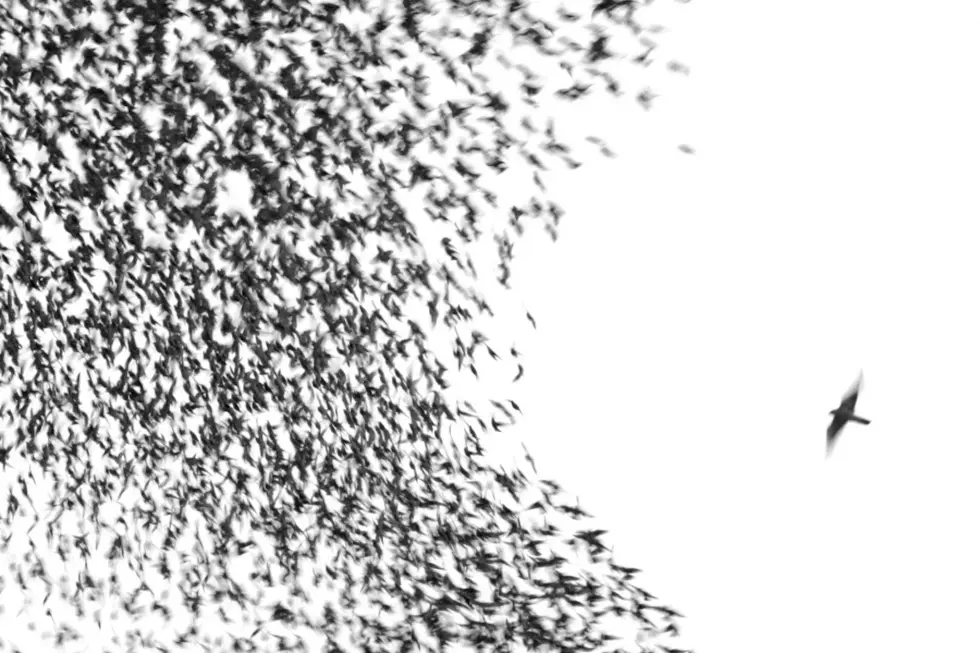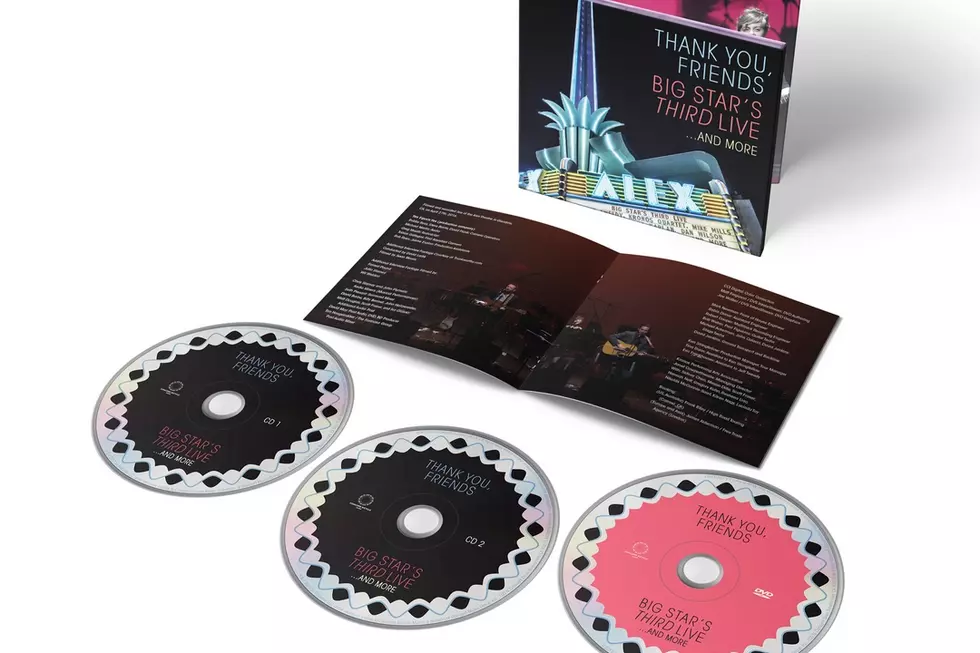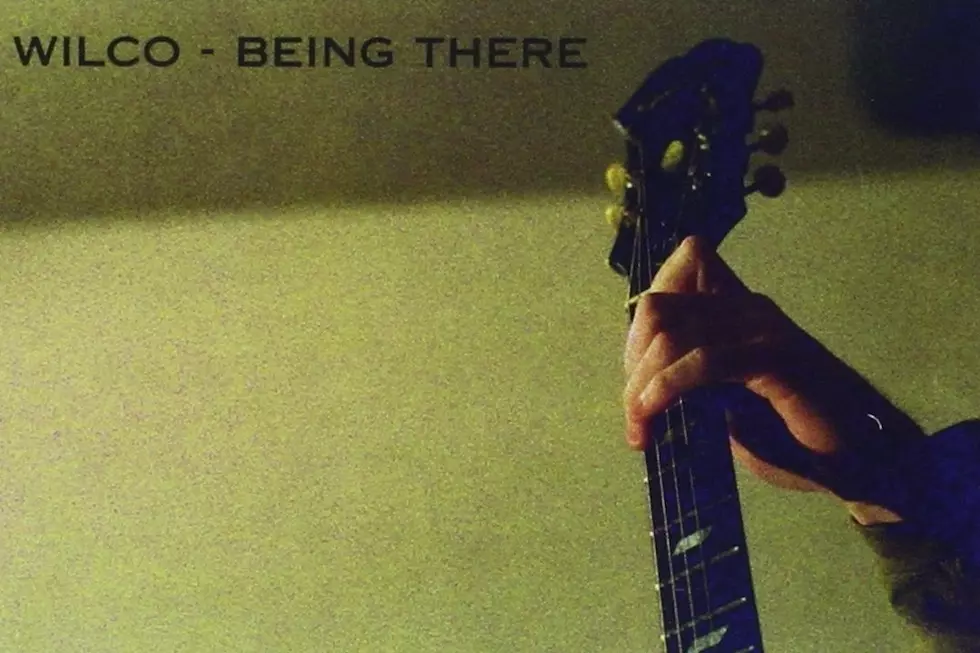
19 Years Ago: Wilco Venture Off the Beaten Alt-Country Path With ‘Being There’
Not many bands would follow up their debut with a double album, but then again not many bands are Wilco.
Fans of Jeff Tweedy's previous band, Uncle Tupelo, or even Wilco's debut album, A.M., wondered what they'd gotten themselves into when they dropped the needle on album opener "Misunderstood." The sawing violins and distorted guitars sound more like an elephant army going to war than alt-country darlings, but that's kind of the point. Tweedy sings, "You're back in your old neighborhood / cigarettes taste so good / but you're so misunderstood." But by then, we're into the acoustic guitars and pretty piano figures that we expected. Don't get too comfortable, though. The raiding party returns for an epic coda: During the closing verse, Tweedy sings, "I'd like to thank you all for nothing at all," and that might be the emotional key to the album.
Being There is named for the film of the same name, in which Peter Sellers plays a simpleton gardener obsessed with his vocation (and television) but who is mistaken for some kind of genius. Likewise, Wilco's second album finds Tweedy closing out his 20s and approaching fatherhood, ready to set aside childish things, as the saying goes. "I really wanted the record to close that chapter of my life where music was the only thing in my life, forever. I wanted it to be like, 'See ya later!'," he told No Depression magazine, back in '96. "But at the same time, I ended up feeling more excited about it again, with just a different perspective on it, but in a really healthy way."
And thus we have a sprawling album that is both swan song and celebration. "Monday," Being There's third track, couldn't be any further from "Misunderstood" in terms of tone. The cut is a '70s FM rave-up in need of a slot between Steely Dan and Orleans on a K-Tel collection, and that's a good thing.
Tweedy's original plan for the album was eight or so songs, but once the band settled into Chicago's War Zone studios, they managed to record almost four times as many. Of the 30 tracks recorded, 21 made it to the mixing stage and 19 made the final cut.
Rather than gouge fans with a double album, Tweedy managed to get his label to agree to sell the album for a single record price. That decision came with its own compromises, specifically in terms of keeping packaging to a minimum. Again from Tweedy's interview with No Depression:
"[The packaging] is kind of like a mini-record, it folds out and has pouches for each CD... I think it's going to be like the high end of a single-disc list price. The only way I think it would go up to a regular double disc price is if it sold like 500,000 copies. And that probably won't happen."
Nineteen years later, Tweedy's assumption still holds true – but by how much is unclear: The only readily available sales figure is over a decade old, but even at that point, the album had sold 300,000 copies. That's more than twice what A.M. sold.
What critics and music fans alike gravitated toward was the one thing that sinks many albums: a complete lack of one distinctive style. "Far, Far Away" is canonical Wilco/Uncle Tupelo, "Forget the Flowers" is the greatest Grateful Dead song the Dead neither wrote nor recorded and "Outtasite (Outta Mind)" is right out of the Big Star playbook.
In other words, Being There was put together less like an album and more like how people listen to their favorite music. It was an iPod set on shuffle five years before "iPod" or "shuffle" were ubiquitous.
Rolling Stone was quick to point out that Being There's eclecticism wasn't unprecedented, name-checking both the Clash's London Calling and the Rolling Stones' Exile on Main Street in the process. They saved the most surprising musical comparison for last: "Wilco have not made your standard rock 'n' roll road album. Tweedy's songs use the one-nighter clichés of Grand Funk Railroad's "We're an American Band" as a means of exploring deeper issues, particularly faith and commitment and how those qualities are tested by geographical and emotional distances." Entertainment Weekly kept their commentary pure and simple, noting that the album's songs "confront adult insecurities forthrightly and tunefully and document the maturation of a good band into a potentially great one."
Little did we know in 1996 how much lay ahead for Jeff Tweedy and Wilco -- the huge success of Yankee Hotel Foxtrot, Tweedy's struggles with addiction and mental health issues, the emergence of the band Tweedy (with his son Spencer) and 2015's surprise Wilco comeback, Star Wars. No, all we knew in '96 is that we had two new discs of Wilco material, and they were brilliant.
Worst to First: Every Wilco Album Ranked
More From Diffuser.fm









